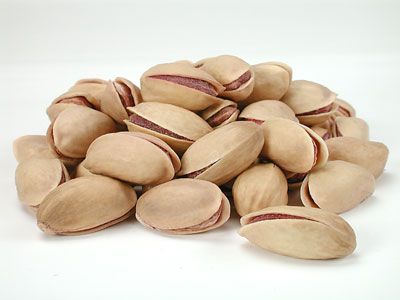New publications
Pistachios reduce the risk of cancer
Last reviewed: 01.07.2025

All iLive content is medically reviewed or fact checked to ensure as much factual accuracy as possible.
We have strict sourcing guidelines and only link to reputable media sites, academic research institutions and, whenever possible, medically peer reviewed studies. Note that the numbers in parentheses ([1], [2], etc.) are clickable links to these studies.
If you feel that any of our content is inaccurate, out-of-date, or otherwise questionable, please select it and press Ctrl + Enter.
All nuts are good for cardiovascular health, but pistachios can reduce the risk of developing some forms of cancer. This is the conclusion reached by American researchers from the University of Texas.
Scientists from the United States have studied the effects of pistachios included in a varied and balanced diet. It turned out that a substance called gamma-tocopherol (a type of vitamin E) found in these nuts has a preventive effect against some tumors. Vitamin E consists of various vitamins that are soluble in fat and perform various functions.

Gamma-tocopherol is one of them. It is one of the powerful antioxidants that allows the body to prevent damage caused by free radicals, protect the skin from ultraviolet radiation and ensure proper communication between cells. Antioxidants have anti-inflammatory functions, which makes them a good preventive measure against tumors.
"In the study, we divided the participants into those who ate a normal diet and those who included 100 pistachio kernels every day," says research analyst Phil Lempert. "After one month, those who ate pistachios had higher levels of gamma-tocopherol in their blood."
Pistachios are not only a rich source of vitamin E, but also vitamins B, especially B6. And they are very useful for the nervous system, and in addition, they help to break down sugars and fibers in the body. Finally, pistachios contain iron, which helps distribute oxygen throughout the body, normalizing the functioning of the immune system.

 [
[